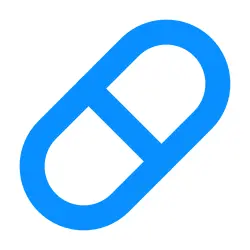Treatments (0)
Advice for Asthma
Breathing issues may be present the majority of the time for some people with severe asthma.
The most typical signs of asthma include:
- wheezing (a whistling sound during breathing) (a whistling sound when breathing)
- breathlessness
- a tight chest may feel as though a band is constricted around it.
- coughing
These symptoms can be caused by a variety of conditions, but they are more likely to be asthma if they:
- happen frequently and recur
- are worse at night and in the morning, and they tend to get worse after
- exercising or when you have an allergy (such as to pollen or animal fur)
Your clinician will go through your medical background, including details about your parents and siblings. You'll be questioned by your clinician about your symptoms as well. Any history of allergies, eczema (an itchy rash brought on by allergies), or other lung conditions must be disclosed to your clinician.
Your clinician might ask for spirometry. This test gauges how well your lungs are working and is used to both diagnose and track your recovery. A skin test, blood test, or chest X-ray may be prescribed by your clinician.
There are four main types for asthma treatments:
therapies for asthma relief quickly
Only take these medicines if you are experiencing asthma symptoms or an attack. They offer you prompt relief, allowing you to resume breathing.
Bronchodilators instantly relieve symptoms by relaxing the constricted muscles around your airways. Bronchodilators can be given orally or intravenously, however they are most frequently used using an inhaler (rescue) or nebulizer. They can be given before activity to avoid a flare-up or used to treat unexpected asthma symptoms.
First Aid. Tell them to sit up straight and help them use their rescue inhaler or nebulizer if you believe they are experiencing an asthma attack. Depending on the drug, the dosage will change. To be sure you know how many puffs of medication you need in case of an attack, check the directions insert. Get immediate medical treatment if symptoms last for more than 20 minutes and a second medicine dose is ineffective.
Drugs for long-term control of asthma. These drugs are used on a daily basis to help lessen the frequency and intensity of your asthma symptoms, but they do not treat the initial signs of an attack. The following are long-term asthma control drugs:
Anti-inflammatories. Corticosteroids and other anti-inflammatory drugs can be inhaled to help reduce swelling and mucus formation in your airways, which makes breathing easier.
Anticholinergics. These aid in preventing the muscles around your airways from contracting. Anti-inflammatories are typically used daily in addition to them.
Prolonged bronchodilators These ought to only be combined with asthma anti-inflammatory drugs.
More knowledge is available regarding preventing asthma attacks. These tactics consist of:
Preventing Triggers Avoid substances, odors, or items that have in the past made it difficult to breathe.
Minimizing contact with allergens. Avoid allergens that you've found to cause asthma attacks, such as dust or mold, if at all possible.
Taking allergy medication. One form of treatment that could influence your immune system is allergen immunotherapy. Your body may grow less sensitive to any triggers you experience if you receive shots on a regular basis.
Using medicine as a preventative. You can be given daily pharmaceutical prescriptions by your clinician. You could use this drug in addition to your emergency medication.
Along with utilizing maintenance medications, you can improve your health and lower your risk of asthma episodes by making little changes to your daily routine. These consist of:
Eating a more wholesome diet. Your entire health can be enhanced by eating a nutritious, balanced diet.
Keeping a healthy weight. Overweight and obese people typically have worse asthma. Losing weight benefits your heart, joints, and lungs in a positive way.
Quit smoking. Smoke from cigarettes and other irritants can cause asthma attacks and raise your chance of developing COPD.
Doing regular exercise. An asthma attack can be brought on by activity, yet regular exercise may actually help lower the chance of breathing issues.
Controlling stress. Asthma symptoms may be triggered by stress. Additionally, stress can make it more challenging to end an asthma attack.
Food allergies can exacerbate asthma symptoms, yet nutrient-rich diets are essential for symptom reduction.
Asthma FAQs (4)
Common symptoms like wheezing, coughing, tightness in the chest, or shortness of breath can be brought on by the asthmatic airway constriction and inflammation. The severity of these symptoms varies from person to person depending on when they occur. With time, they could get better or worse. You and your clinician can work together to build an asthma action plan to help you control your symptoms through daily symptom monitoring and medication use.
No, asthma cannot be spread.
Most asthma sufferers are able to engage in all forms of physical activity. People with asthma can benefit greatly from physical activity. Consult your clinician for advice on how to control your asthma while participating in sports. Stop immediately if you have pain or a tightness in your chest, a cough, or you start to feel short of breath.
Yes, treating your asthma requires avoiding triggers and identifying when they aggravate your symptoms.

